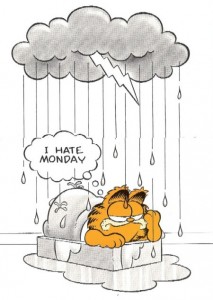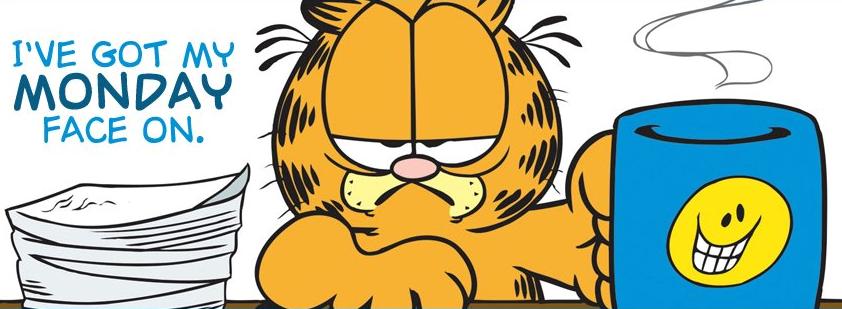Blue Monday is definitely a thing now. Dreamt up by marketeers and bogus scientists in 2005, the term has entered the public discourse by now. Media are full of tips to prevent Monday blues, and marketeers take it as a change to drive holiday sales and shopping in an otherwise dull January month. One could call it fake news.
And actually, I’ve also jumped on the Blue Monday bandwagon myself. Even though Blue Monday itself is bogus, there is such a thing as a winter depression, and January is still well in the dark season. Just as we meet family around Christmas, it’s sensible to meet up with friends around Blue Monday for celebration.
Since a few years, my wife and I tend to organise Blue Monday Eve drinks, inviting some friends to ensure we enter Blue Monday with a jolly feeling instead. We try to make it feel different from an ordinary house party; inviting friends on a Sunday instead and playing games (we still procured some wine though).
This year, we also played a happiness quiz with our guests, and on special request I post the questions and answers of the For A State of Happiness Blue Monday Quiz here – maybe you want to use them next year, or at a last minute Blue January event? You still have a week, and if not, February can be pretty blue too.
The For A State of Happiness Blue Monday Quiz 2019
What is the happiest country of the world?
According to the 2018 edition of the World Happiness Report: Finland.
What is hygge?
Hygge is a Danish concept that roughly translates to ‘cosiness’, typically felt sitting in front of the fire place with a hot chocolate during a storm. It stands for comfort, togetherness and wellbeing, according to Meik Wiking, author of a book on Hygge and director of the Copenhagen-based Happiness Research Institute.
What are the four elements making people happy at work, according to Pracuję bo lubię?
Energy, flow, purpose, and positive emotions. For more detail (but slightly different naming), see my post after sitting down with Aleksandra Grabska from Pracuję bo lubię (‘I work because I like it’).
Who are happier: people with cats or with dogs?
My post on this is not online yet, but the (unsurprising to most) answer is: dog owners tend to be happier.
Does the weather influence our quality of life?
This is the one many people get wrong: no, it doesn’t. Why not? Two psychological process explain why: ‘focus illusion’ and adaptation.
Which country invented Gross National Happiness?
Readers of my blog will know: Bhutan!
What ranking does Poland have in the World Happiness Report for 2018, out of 156 countries?
The answer is: 42, a bit higher than Poles would suspect. Compared globally, quality of life in Poland is pretty strong, and it has seen major improvements in the last 25 years. Still, Poland is a country where one has to find happiness in unhappiness.
When is the International Day of Happiness?
In 2012, on Bhutan’s initiative, the United Nations decided to institute an International Day of Happiness. It is celebrated each year on 20 March.
Name six positive emotions.
Naming six positive emotions may sound like a lot, but researchers identified even more of them. At Warsaw University, they listed ten: enchantment, love, inspiration, pride, amusement, hope, interest, calm, gratitude, and joy.
What motivates our behaviour more: positive or negative emotions?
Again, a question based on lectures at Warsaw University. While negative emotions can trigger strong responses to difficult events, ultimately positive emotions have a stronger impact on our actions than negative ones.



![\frac{[W + D-d] T^Q}{M N_a}](http://upload.wikimedia.org/math/0/4/8/0488676cfd763b28dd774e06b7f554b4.png)
